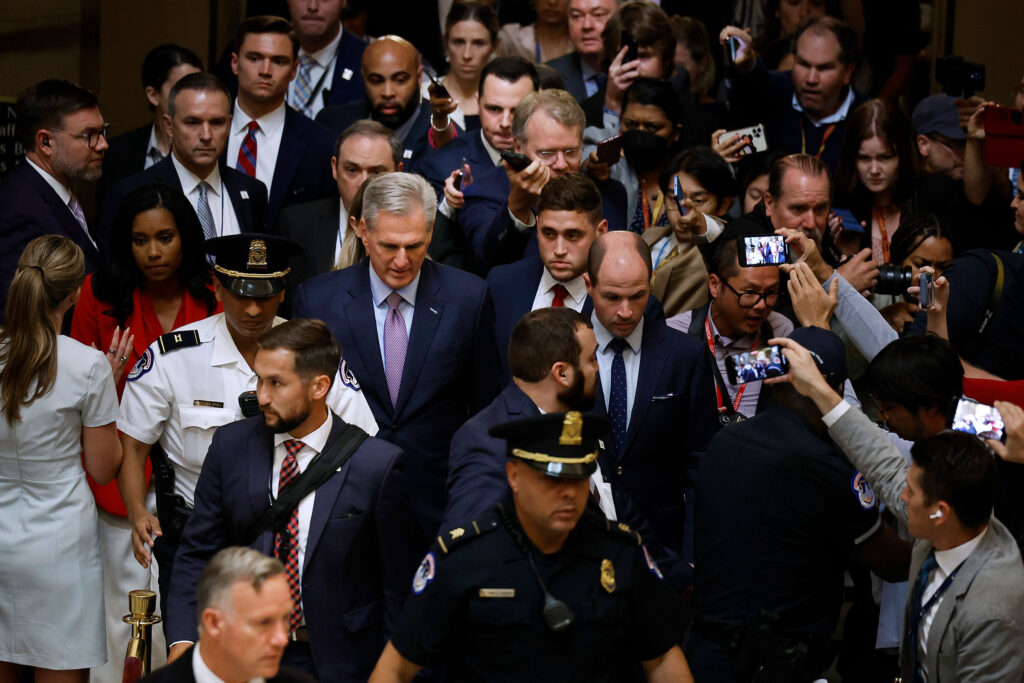U.S.
Kevin McCarthy removed from his position as Speaker of the House
The White House has urged House Republicans to “swiftly elect a Speaker,” marking the first official response from the administration following the vote that removed Rep. Kevin McCarthy from his leadership role.
Speaker of The House
White House press secretary Karine Jean-Pierre stated on Tuesday, “President Biden has consistently shown his willingness to collaborate in good faith with both parties in Congress on behalf of the American people. Given the pressing challenges our nation faces, he encourages the House to promptly select a Speaker.”
Jean-Pierre further commented, “Once the House fulfills its duty by electing a speaker, he eagerly anticipates cooperating with both chambers of Congress to address the priorities of the American people.”
Kevin McCarthy
In a historic turn of events, Kevin McCarthy has temporarily lost his position as Speaker of the House following a high-stakes showdown on Capitol Hill over government funding.
The California Republican, who faced significant challenges, including a challenging vote count and a rebellion within the conservative faction of his party against his speakership, was removed from office by a vote of 216-210. Notably, eight Republicans voted to oust McCarthy from the speakership.

What’s next: According to the reference guide “House Practice: A Guide to the Rules, Precedents, and Procedures of the House,” McCarthy was required to provide a confidential list of individuals to the Clerk, specifying the order in which they would act as Speaker pro tempore in case of a vacancy. When McCarthy was removed from the position, the Clerk referred to this list, and the top name on the list, GOP Rep. Patrick McHenry, a close ally of McCarthy, assumed the role of interim speaker.
The House will now need to proceed with the election of a new Speaker. Sources suggest that the House GOP will convene for a conference meeting on Tuesday night, although the actual election is not expected to take place on Tuesday.
Historical precedents: The most recent high-profile showdown over a motion to vacate the office of Speaker occurred in 2015 when then-GOP Rep. Mark Meadows of North Carolina introduced a resolution to declare the speaker’s office vacant during John Boehner’s tenure as Speaker. However, this resolution did not go to a floor vote.
Shortly after the resolution’s introduction, Boehner downplayed its significance, describing it as “no big deal.” Nevertheless, a few months later, he announced his decision to resign from the position.
Another noteworthy incident dates back to 1910 when then-House Speaker Joseph Cannon, an Illinois Republican, managed to retain his speakership despite a resolution to remove him coming to a vote on the House floor. The resolution failed with a vote of 155 to 192.
The White House has urged House Republicans to “swiftly elect a Speaker,” marking the first official response from the administration following the vote that removed Rep. Kevin McCarthy from his leadership role. Speaker of The House White House press secretary Karine Jean-Pierre stated on Tuesday, “President Biden has consistently shown his willingness to collaborate in…

